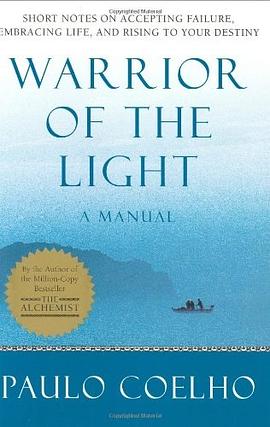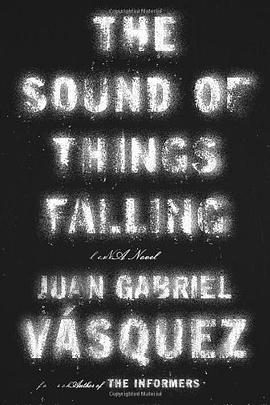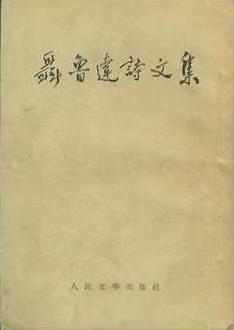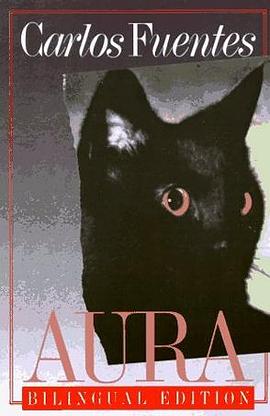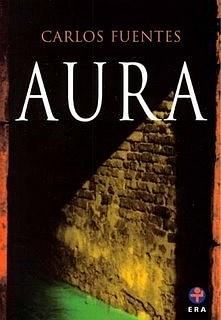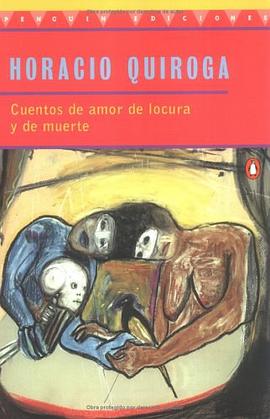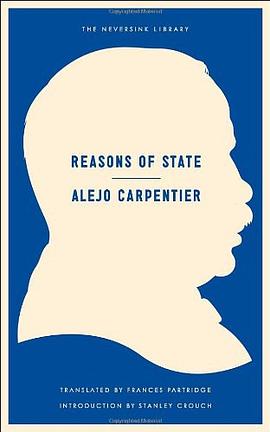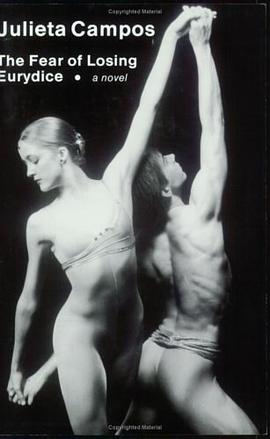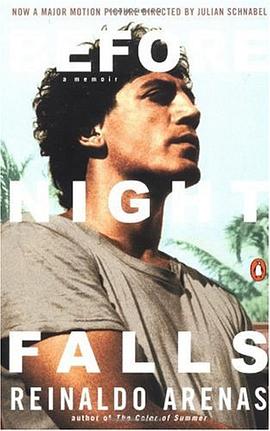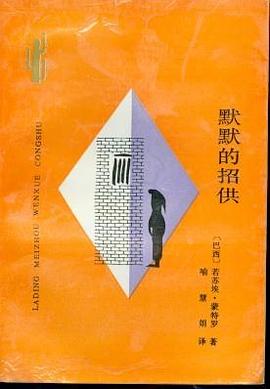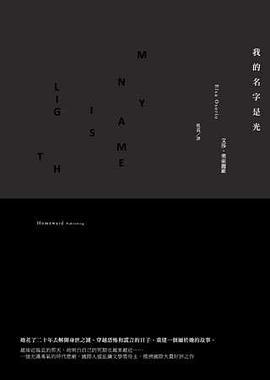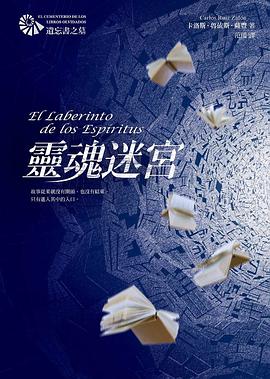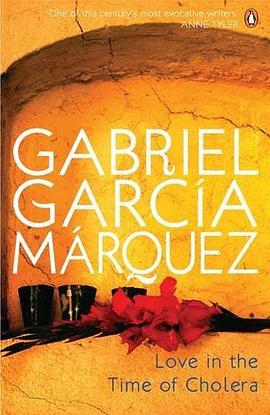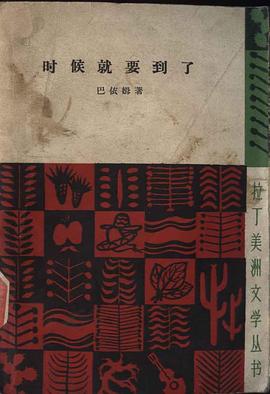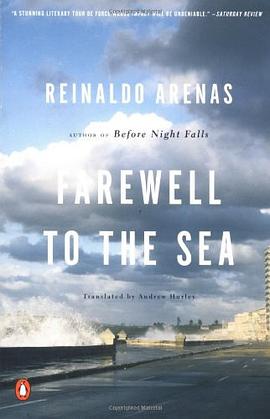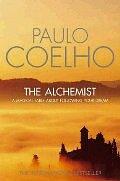

具体描述
Like the one-time bestseller Jonathan Livingston Seagull, The Alchemist presents a simple fable, based on simple truths and places it in a highly unique situation. And though we may sniff a bestselling formula, it is certainly not a new one: even the ancient tribal storytellers knew that this is the most successful method of entertaining an audience while slipping in a lesson or two. Brazilian storyteller Paulo Coehlo introduces Santiago, an Andalusian shepherd boy who one night dreams of a distant treasure in the Egyptian pyramids. And so he's off: leaving Spain to literally follow his dream.
Along the way he meets many spiritual messengers, who come in unassuming forms such as a camel driver and a well-read Englishman. In one of the Englishman's books, Santiago first learns about the alchemists--men who believed that if a metal were heated for many years, it would free itself of all its individual properties, and what was left would be the "Soul of the World." Of course he does eventually meet an alchemist, and the ensuing student-teacher relationship clarifies much of the boy's misguided agenda, while also emboldening him to stay true to his dreams. "My heart is afraid that it will have to suffer," the boy confides to the alchemist one night as they look up at a moonless night.
"Tell your heart that the fear of suffering is worse than the suffering itself," the alchemist replies. "And that no heart has ever suffered when it goes in search of its dreams, because every second of the search is a second's encounter with God and with eternity." --Gail Hudson, Amazon.com Review
作者简介
Paulo Coelho was born in Rio de Janeiro, Brazil, the city where he now lives. His own life has in many ways been as varied and unusual as the protagonists of his internationally acclaimed novels. Like them, Paulo Coelho has followed a dream in a quest for fulfillment. His own dream, to be a writer, met with frustration throughout much of his early adult life, a time in which he worked at various professions, some of them materially rewarding but spiritually unfulfilling. "I always knew," he says, "that my Personal Legend, to use a term from alchemy, was to write." He was 38 when he published his first book.
In 1970, after deciding that law school was not for him, he traveled through much of South America, North Africa, Mexico, and Europe. Returning to Brazil after two years, he began a successful career as popular songwriter. In 1974, he was imprisoned for a short time by the military dictatorship then ruling in Brazil. In 1980, he experienced one of the defining moments of his life: he walked the 500-plus mile Road of Santiago de Compostela in northwestern Spain. On this ancient highway, used for centuries by pilgrims from France to get to the cathedral said to house the remains of St. James, he achieved a self-awareness and a spiritual awakening that he later described in The Pilgrimage.
Paulo Coelho once said that following your dream is like learning a foreign language; you will make mistakes but you will get there in the end. In 1988, he published The Alchemist, a novel that explores this theme, and it launched him as an international bestselling author. Specifically, Paulo Coelho is recognized for his powerful storytelling technique and the profound spiritual insights he blends seamlessly into his parables. Since then, The Alchemist has sold more than 11 million copies worldwide and has been translated into some 41 languages. In addition to The Pilgrimage and The Alchemist, Paulo Coelho has written luminous novels about the different streams of our lives, including By The River Piedra I Sat Down & Wept, The Valkyries, The Fifth Mountain, and Veronika Decides to Die. A winner of numerous literary prizes, Paulo Coelho is also a prominent speaker for humanitarian causes. In 1999, he received a Crystal Award for Artistic Achievement at the Davos Economic Forum Conference.
目录信息
读后感
读完这本书,觉得自己真是一个毫无功利心的人。在工作压力、考试压力、对未来也比较无知的情况下,还可以喝着茶,静静地一页一页看完这本书。 我并不相信什么炼金术士,也不相信少年真的可以呼唤太阳、与世界之魂交流并把自己变成风…… 化学老师的教诲仍犹在耳,铅这种金属变...
评分 评分初读这本书的时候,以为只是个简单的童话般的故事罢了。 一切从一个牧羊少年遇到了一位王开始。 正如《圣经》里所说的那样: 摩西赶羊赶到旷野西边,到了上帝的山,就是何烈山。 …… 耶和华说:“现在你来,我要差你去见法老,把我的子民以色列人从埃及领出来。”...
评分如果不是早年读过博尔赫斯的《双梦记》,翻到本书的213页,看到“他已经找到了财宝了”这句话,还真会被震到。幸好,这种震惊已经获得过,所以,本书给我的全部感觉,就只剩下纯真、简单和平静。很好。就像小时候,穿着新的衬衫和长裤,独自一人,走过初夏傍晚的街道回家。 从...
评分或許是我太不習慣這書的表達,或是我實在有點小愚昧,我很難理解這書獲得好評的理由。 莫非僅僅是寓言式的表達就可以說動大家對他寬容嗎? 故事結構簡單得無以復加,用一些宗教的思想來掩飾其后的單薄,任由作者的想象力來推動故事的前進,像是一些劣質的連續劇。 ...
用户评价
这本新近读完的著作,给我留下了极其深刻的印象,它仿佛是一面古老的镜子,映照出我们内心深处最原始的渴望与追寻。故事的叙事节奏张弛有度,初读时,我被那种近乎神话般的氛围所吸引,主人公踏上旅途的动机,那种对未知世界的好奇与向往,简直能点燃每一个沉睡的灵魂。作者的笔触极其细腻,描绘的异域风光、陌生的文化习俗,都栩栩如生地展现在眼前,让人仿佛能闻到撒哈拉沙漠干燥的空气,感受到市集里喧嚣的人声鼎沸。更令人称道的是,书中对“追寻”这一主题的探讨,并非停留在肤浅的励志层面,而是深入到个体生命意义的挖掘。它不直接给你答案,而是通过一系列的隐喻和象征,引导读者自己去构建对“天命”的理解。我特别喜欢其中关于“心之所向”与“世界之声”相互呼应的哲学思辨,那种宇宙万物皆有灵性的观念,极大地拓宽了我对现实世界的认知边界。整本书读下来,感觉像经历了一场漫长而又充实的洗礼,许多过去纠结不清的困惑,似乎都在不经意间找到了一个松动的出口。
评分对于那些渴望在平淡生活中寻找“火花”的人来说,这本作品无疑是一剂强心针。我发现,它最大的力量在于其叙事的纯粹性——故事线索非常清晰,没有多余的枝蔓去分散注意力,所有的事件似乎都是为了最终那个核心主题服务。主人公从一个普通的牧羊人,逐步蜕变为一个真正理解生命奥秘的探索者,这个过程的描绘极具说服力。书中关于“爱”与“追寻”之间关系的论述,也相当精妙。它告诉我们,真正的爱,不是束缚,而是相互成就,是鼓励对方去完成其最高潜能的动力。我曾一度对自己的职业发展感到迷茫,但这本书提醒了我,重要的不是目的地本身,而是沿途所累积的经验和获得的内在成长。它像一个温暖的导师,在耳边轻声细语,告诉你“勇敢地去做你注定要做的事”,这种无条件的肯定感,在现实的压力下显得尤为珍贵。这种阅读体验,更像是进行了一次深刻的自我对话。
评分读罢此书,我需要时间去消化其中蕴含的丰富象征意义。坦白说,初读时,其哲理的深度一度让我感到有些难以捉摸,特别是那些关于符号、预兆和命运的讨论,需要反复咀嚼才能体会其妙处。这本书的魅力在于它的“留白”,作者似乎并不急于将所有信息一次性倾泻而出,而是将解读的空间巧妙地留给了读者。我欣赏它对“执着”的辩证处理——它歌颂坚韧不拔的信念,但同时也警示我们,真正的追寻往往需要放下固有的执念,才能看到更广阔的风景。书中对“炼金术”的描绘,与其说是化学上的转化,不如说是精神层面的升华,从卑微的铅到高贵的黄金,这是一个不断自我超越的过程。我尤其对那位充满智慧的长者形象印象深刻,他的教导简短却掷地有声,像一把开启心智的钥匙,让人在迷茫时能迅速找到方向。这本书的语言风格典雅而富有韵律感,即使是描述最简单的场景,也带有一种史诗般的庄重,非常值得细细品味,那种韵味是现代快餐文学所无法比拟的。
评分这本书给我最大的启发,在于它对“当下”的强调。在主人公的冒险过程中,有无数次他差点被眼前的诱惑或暂时的挫折所困住,但最终他总是被教导要专注于“此时此刻”的信号和行动。这在如今这个信息爆炸、人心浮躁的时代,显得尤为重要。作者并非鼓吹不切实际的幻想,而是倡导一种积极、专注的生活态度。它用最简单、最纯净的语言讲述了一个最普遍的真理:我们所拥有的,其实就是我们正在经历的一切。我特别欣赏书中对“转变”的描绘,那种从内在萌发出来的力量,远远超过任何外在的物质财富。阅读过程中,我时不时会停下来,合上书本,反思自己生活中的“炼金术”——我如何将生活中的“铅”(挑战、困难)转化为“黄金”(成长、智慧)?这本书的魔力在于,它不会给你一个现成的公式,而是激发你去创造属于你自己的转化过程。它不是一本读完就束之高阁的书籍,而更像是一个持续给你注入能量和启示的“精神伴侣”。
评分从文学构造的角度来看,这本书的结构设计堪称精巧,犹如一个完美的圆,首尾呼应,令人赞叹。它巧妙地融合了寓言故事的简洁与史诗叙事的宏大,使得原本可能晦涩的哲学思辨,通过一个充满异域色彩的冒险故事被生动地呈现出来。我观察到,作者在细节处理上极为考究,每一个配角,即使是昙花一现的角色,都承载着特定的教诲或象征意义,没有一个是多余的。比如那个与黄金有关的片段,它所揭示的关于“拥有”与“珍惜”的悖论,至今仍在我的脑海中回响。这本书的节奏是渐进式的,从最初的朴实无华,到后来的顿悟与圆满,情感的铺陈自然而然,不矫揉造作。它成功地建立了一个超越时空的语境,让不同文化背景的读者都能从中找到共鸣点,这无疑是其成为经典的重要原因。读完后,我甚至产生了一种强烈的冲动,想重新审视自己过去所忽略的那些细微的、被日常琐事掩盖的美好瞬间。
评分這個故事是如此簡單 它衹是告訴我們 追隨自己的心去生活。但無論如何簡單 聯結起生活 都不容易 而在長久的經歷之中 受著困境 傷害和懷疑的不斷侵蝕 依然保持對自己夢想深沉的信賴 更是不易吧。
评分讲述了一个boy是如何历尽千辛万苦,放弃了已经得到的,为了自己的梦想,迈向未知的旅程,最终实现了自己的梦想。其中作者透视了一些人生哲理,这些哲理会让人感到震撼,因为大多数人已经迷失了梦想。
评分這個故事是如此簡單 它衹是告訴我們 追隨自己的心去生活。但無論如何簡單 聯結起生活 都不容易 而在長久的經歷之中 受著困境 傷害和懷疑的不斷侵蝕 依然保持對自己夢想深沉的信賴 更是不易吧。
评分世界之心呀。
评分People learn, early in their lives, what is their reason for being. Maybe that's why they give up on it so early, too. But that's the way it is.
相关图书
本站所有内容均为互联网搜索引擎提供的公开搜索信息,本站不存储任何数据与内容,任何内容与数据均与本站无关,如有需要请联系相关搜索引擎包括但不限于百度,google,bing,sogou 等
© 2026 book.quotespace.org All Rights Reserved. 小美书屋 版权所有


